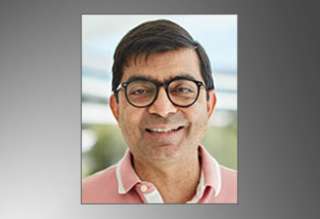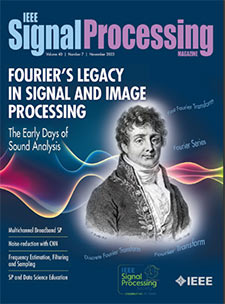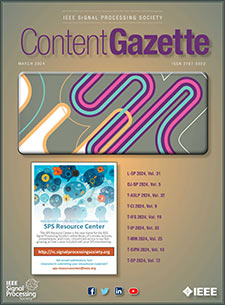- Our Story
- Publications & Resources
- Publications & Resources
- Publications
- IEEE Signal Processing Magazine
- IEEE Journal of Selected Topics in Signal Processing
- IEEE Signal Processing Letters
- IEEE/ACM Transactions on Audio Speech and Language Processing
- IEEE Transactions on Computational Imaging
- IEEE Transactions on Image Processing
- IEEE Transactions on Information Forensics and Security
- IEEE Transactions on Multimedia
- IEEE Transactions on Signal and Information Processing over Networks
- IEEE Transactions on Signal Processing
- IEEE TCI
- IEEE TSIPN
- Data & Challenges
- Submit Manuscript
- Guidelines
- Information for Authors
- Special Issue Deadlines
- Overview Articles
- Top Accessed Articles
- SPS Newsletter
- SigPort
- SPS Resource Center
- Publications Feedback
- Publications FAQ
- Blog
- News
- Dataset Papers
- Conferences & Events
- Community & Involvement
- Professional Development
- For Volunteers
- Information for Authors-OJSP
-
Home
Conferences14 April 2025 to 17 April 2025Conferences Events IEEE JSTSP Article IEEE Signal Processing Magazine IEEE TIFS Article IEEE TMM Article IEEE TSP Article Jobs in Signal Processing Lectures Machine Learning Seasonal Schools Signal Processing News SPM Article SPS Distinguished Lectures SPS Newsletter Article SPS Webinar SPS Webinars SPS Webinar Series Webinar webinars
-
Our Story
What is Signal Processing?

The technology we use, and even rely on, in our everyday lives –computers, radios, video, cell phones – is enabled by signal processing. Learn More » -
Publications & Resources
-
SPS Resources
- Signal Processing Magazine The premier publication of the society.
- SPS Newsletter Monthly updates in Signal Processing
- SPS Resource Center Online library of tutorials, lectures, and presentations.
- SigPort Online repository for reports, papers, and more.
- SPS Feed The latest news, events, and more from the world of Signal Processing.
-
SPS Resources
-
Conferences & Events
-
Community & Involvement
-
Membership
- Join SPS The IEEE Signal Processing Magazine, Conference, Discounts, Awards, Collaborations, and more!
- Chapter Locator Find your local chapter and connect with fellow industry professionals, academics and students
- Women in Signal Processing Networking and engagement opportunities for women across signal processing disciplines
- Students Scholarships, conference discounts, travel grants, SP Cup, VIP Cup, 5-MICC
- Young Professionals Career development opportunities, networking
- Get Involved
-
Technical Committees
- Applied Signal Processing Systems
- Audio and Acoustic Signal Processing
- Bio Imaging and Signal Processing
- Computational Imaging
- Image Video and Multidimensional Signal Processing
- Information Forensics and Security
- Machine Learning for Signal Processing
- Multimedia Signal Processing
- Sensor Array and Multichannel
- Signal Processing for Communication and Networking
- Signal Processing Theory and Methods
- Speech and Language Processing
- Technical Working Groups
- More TC Resources
-
Membership
-
Professional Development
-
Professional Development
- Mentoring Experiences for Underrepresented Young Researchers (ME-UYR)
- Micro Mentoring Experience Program (MiME)
- Distinguished Lecturer Program
- Distinguished Lecturers
- Distinguished Lecturer Nominations
- Past Lecturers
- Distinguished Industry Speaker Program
- Distinguished Industry Speakers
- Distinguished Industry Speaker Nominations
- Industry Resources
- IEEE Training Materials
- Jobs in Signal Processing: IEEE Job Site
-
Career Resources
- SPS Education Program Educational content in signal processing and related fields.
- Distinguished Lecturer Program Chapters have access to educators and authors in the fields of Signal Processing
- PROGRESS Initiative Promoting diversity in the field of signal processing.
- Job Opportunities Signal Processing and Technical Committee specific job opportunities
- Job Submission Form Employers may submit opportunities in the area of Signal Processing.
-
Professional Development
-
For Volunteers
-
For Board & Committee Members
- Board Agenda/Minutes* Agendas, minutes and supporting documentation for Board and Committee Members
- SPS Directory* Directory of volunteers, society and division directory for Board and Committee Members.
- Membership Development Reports* Insight into the Society’s month-over-month and year-over-year growths and declines for Board and Committee Members
-
For Board & Committee Members
Popular Pages
Today's:
- Submit a Manuscript
- Information for Authors
- IEEE Transactions on Information Forensics and Security
- (MLSP 2024) 2024 IEEE International Workshop on Machine Learning for Signal Processing
- (ACSSC 2024) 2024 Asilomar Conference on Signals, Systems, and Computers
- IEEE/ACM Transactions on Audio Speech and Language Processing
- IEEE Transactions on Multimedia
- IEEE Transactions on Signal Processing
- IEEE Signal Processing Magazine
- IEEE Transactions on Image Processing
- Guidelines
- IEEE Signal Processing Letters
- IEEE Journal of Selected Topics in Signal Processing
- Membership
- Video & Image Processing Cup
All time:
- Information for Authors
- Submit a Manuscript
- IEEE Transactions on Image Processing
- 404 Page
- IEEE/ACM Transactions on Audio Speech and Language Processing
- IEEE Transactions on Information Forensics and Security
- IEEE Transactions on Multimedia
- IEEE Signal Processing Letters
- IEEE Transactions on Signal Processing
- Conferences & Events
- IEEE Journal of Selected Topics in Signal Processing
- Information for Authors-SPL
- Conference Call for Papers
- Signal Processing 101
- IEEE Signal Processing Magazine
Last viewed:
- IEEE Transactions on Image Processing
- (ICIP 2025) 2025 IEEE International Conference on Image Processing
- Information for Authors
- IEEE/ACM Transactions on Audio Speech and Language Processing
- Guidelines
- SPS Scholarship Program
- IEEE Signal Processing Magazine
- About the Magazine
- (WASPAA 2023) 2023 IEEE Workshop on Applications of Signal Processing to Audio and Acoustics
- Submit a Manuscript
- Interview with Chetan Arora, Associate Professor, IIT Delhi, India
- Call for Nominations: SPS Scholarship Program
- IEEE Transactions on Multimedia
- Speech and Language Technical Committee Newsletter
- Call for Nominations: IEEE Medals & Recognitions
Newsletter Menu
Newsletter Categories
Top Reasons to Join SPS Today!
1. IEEE Signal Processing Magazine
2. Signal Processing Digital Library*
3. Inside Signal Processing Newsletter
4. SPS Resource Center
5. Career advancement & recognition
6. Discounts on conferences and publications
7. Professional networking
8. Communities for students, young professionals, and women
9. Volunteer opportunities
10. Coming soon! PDH/CEU credits
Click here to learn more.
News and Resources for Members of the IEEE Signal Processing Society
46 SPS Members Elevated to IEEE Fellow
46 SPS Members Elevated to Fellow
Each year, the IEEE Board of Directors confers the grade of Fellow on up to one-tenth of one percent of the members. To qualify for consideration, an individual must have been a Member, normally for five years or more, and a Senior Member at the time for nomination to Fellow. The grade of Fellow recognizes unusual distinction in IEEE’s designated fields.
The Signal Processing Society congratulates the following 46 SPS members who were recognized with the grade of Fellow as of 1 January 2013:
Scott Acton, Charlottesville, Virginia: for contributions to biomedical image analysis.
Enrico Bocchieri, Florham Park, New Jersey: for contributions to computational models for speech recognition.
David Bull, Bristol, United Kingdom: for contributions in video analysis, compression and communications.
Vince Calhoun, Albuquerque, New Mexico: for contributions to data-driven processing of multimodal brain imaging and genetic data.
Tzi-Dar Chiueh, Taipei, Taiwan: for contributions to baseband processing integrated circuits for communications systems.
Peter Chow, Los Alto, California: for contributions to digital subscriber line technology.
Andrzej Cichocki, Wako, Japan: for contributions to applications of blind signal processing and artificial neural networks.
Max Costa, Campinas, Brazil: for contributions to multiterminal information theory.
Mihai Datcu, Wessling, Germany: for contributions to information mining of high resolution synthetic aperature radar and optical earth observation images.
Antonio De Maio, Napoli, France: for contributions to radar signal processing.
Yonina Eldar, Haifa, Israel: for contributions to compressed sampling, generalized sampling, and convex optimization.
Aaron Fenster, London, Canada: for contributions to medical imaging and ultrasound-guided intervention.
Christine Guillemot, Rennes-Cedex, France: for contributions to image and video compression.
Hakan Hjalmarsson, Stockholm, Sweden: for contributions to data-based controller design.
Anders Host-Madsen, Honolulu, Hawaii: for contributions to communication theory for wireless networks.
Lina Karam, Tempe, Arizona: for contributions to perception-based visual processing, image and video communications, and digital filtering.
Andre Kaup, Erlangen, Germany: for contributions to video coding and object-based video signal processing.
Nicholas Kingsbury, Cambridge, United Kingdom: for contributions to wavelet transform theory and filterbank design.
Kenneth Kreutz-Delgado, La Jolla, California: for contributions to sparse signal recovery algorithms and dictionary learning.
Gerhard Krieger, Wessling, Germany: for contributions to advanced synthetic aperture radar systems.
Yanda Li, Beijing, China: for contributions to research and education in signal processing and bioinformatics.
Mark Liao, Taipei, Taiwan: for contributions to image and video forensics and security.
Kai-Kuang Ma, Singapore, Singapore: for contributions to image processing and digital video coding.
Danilo Mandic, London, United Kingdom: for contributions to multivariate and nonlinear learning systems.
Helen Meng, Shatin, Hong Kong: for contributions to spoken language and multimodal systems.
Daniel Palomar, Clear Water Bay, Hong Kong: for contributions to convex optimization-based signal processing for communications.
Constantinos Papadias, Peania, Athens, Greece: for contributions to signal processing and coding for multi-antenna wireless systems.
Antonia Papandreou, Tempe, Arizona: for contributions to applications of time-frequency signal processing.
Marcello Pelillo, Venezia Mestre, Italy: for contributions to graph-theoretic and optimization-based approaches in pattern recognition and computer vision.
John Pierre, Laramie, Wyoming: for development of signal processing methods for estimation of power-system stability.
Beatrice Popescu, Paris, France: for contributions to image and video compression and networking.
Peter Pupalaikis, Chestnut Ridge, New York: for contributions to high-speed waveform digitizing instruments.
Richard Rose, Montreal, Canada: for contributions in acoustic modeling of automatic speech and speaker recognition.
Erchin Serpedin, College Station, Texas: for contributions to synchronization of communication systems.
Gaurav Sharma, Rochester, New York: for contributions to electronic imaging and media security.
Zhi (Gerry) Tian, Houghton, Michigan: for contributions to ultra-wideband wireless communications and localization.
Masayuki Tanimoto, Nagoya, Japan: for contributions to the development of free-viewpoint television and its MPEG standard.
Michail Tsatsanis, Huntington Beach, California: for contributions to wireless and digital subscriber line communications.
Ingrid Verbauwhede, Heverlee, Belgium: for contributions to design of secure integrated circuits and systems.
Philip Woodland, Cambridge, United Kingdom: for contributions to large vocabulary speech recognition.
Dapeng Wu, Gainesville, Florida: for contributions to video communciation and processing and wireless networking.
Feng Wu, Beijing, China: for contributions to visual data compression and communication.
Jie Yang, Arlington, Virginia: for contributions to multimodal human-computer interaction.
Bayya Yegnanarayana, Hyderabad, India: for contributions to digital signal processing research and education.
Qing Zhao, Davis, California: for contributions to learning and decision theory in dynamic systems with applications to cognitive networking.
Geoffrey Zweig, Redmond, Washington: for contributions to advance speech recognition.
Each year, the IEEE Board of Directors confers the grade of Fellow on up to one-tenth percent of the members. To qualify for consideration, an individual must have been a Member, normally for five years or more, and a Senior Member at the time for nomination to Fellow. The grade of Fellow recognizes unusual distinction in IEEE’s designated fields. Visit this SPS webpage for full citations of these new fellows and more information about the Fellow program. Nominations are now being accepted till March 1, 2013, for the IEEE Fellow Class of 2014.
Open Calls
Society News
Publications News
Chapter & DL News
Initiatives & Trends
Conference News
New Books
Research Opportunities
Education & Resources
SPS on Twitter
- DEADLINE EXTENDED: The 2023 IEEE International Workshop on Machine Learning for Signal Processing is now accepting… https://t.co/NLH2u19a3y
- ONE MONTH OUT! We are celebrating the inaugural SPS Day on 2 June, honoring the date the Society was established in… https://t.co/V6Z3wKGK1O
- The new SPS Scholarship Program welcomes applications from students interested in pursuing signal processing educat… https://t.co/0aYPMDSWDj
- CALL FOR PAPERS: The IEEE Journal of Selected Topics in Signal Processing is now seeking submissions for a Special… https://t.co/NPCGrSjQbh
- Test your knowledge of signal processing history with our April trivia! Our 75th anniversary celebration continues:… https://t.co/4xal7voFER
Home | Sitemap | Contact | Accessibility | Nondiscrimination Policy | IEEE Ethics Reporting | IEEE Privacy Policy | Terms | Feedback
© Copyright 2024 IEEE – All rights reserved. Use of this website signifies your agreement to the IEEE Terms and Conditions.
A not-for-profit organization, IEEE is the world's largest technical professional organization dedicated to advancing technology for the benefit of humanity.







